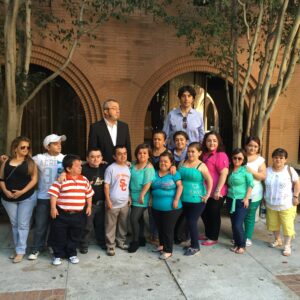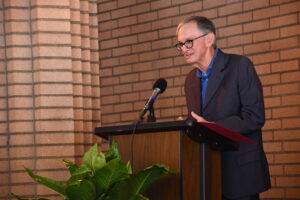New York Times quoted Henry Jay Forman, professor emeritus at USC Leonard Davis, on the potential health benefits of hydrogen-infused water.
Fortune quoted Valter Longo on a recent study showing that a fasting-mimicking diet can lower biological age by up to 2.5 years. “[The fasting-mimicking diet] is making the system younger, and by making it younger, making it more functional,” he said. “It’s really repairing the problem from the source, rather than just putting a Band-Aid downstream of it.”
USC Annenberg Media spoke to Cary Kreutzer about how Wendy’s proposed surge pricing would affect people who rely on fast food as a source of nutrition.
Today Show interviewed Mara Mather on the possible cognitive benefits of drumboxing, an exercise class that provides both a physical and mental challenge. “When you are doing something where you have to keep multiple short-term memories, short little programs, in mind, that’s really one of the most effective cognitive workouts that we can have for the brain.”
Science Alert covered a study by Caleb “Tuck” Finch which showed dementia appears to have not been an issue for ancient Greeks and Romans. The research was based on a text analysis.
USA Today interviewed Francesca Falzarano for a story about long-distance caregiving – an experience shared by an estimated 6 million caregivers in this country. “Long-distance caregivers have not been adequately recognized as legitimate sources of care because of the physical distance that makes their contributions less apparent or visible,” said Falzarano. “However, we have and will continue to see an increase in individuals who find themselves providing, coordinating and managing care from afar.”
Men’s Health (Italy), Town & Country and The Mirror (UK) featured the latest study led by Valter Longo that indicates a fasting-mimicking diet could shave 2.5 years off your biological age.
The Guardian quoted Valter Longo in an article on the benefits and risks of intermittent fasting. “It can make a big difference, but it depends how you do it.”
Earth.com, New York Post (republished by Yahoo News) and Telegraph reported on a study led by Valter Longo that showed a fasting-mimicking diet can lower a person’s biological age. “This is the first study to show that a food-based intervention that does not require chronic dietary or other lifestyle changes can make people biologically younger, based on both changes in risk factors for ageing and disease,” Longo said.
Medical Xpress and Medriva covered a study by Valter Longo that indicates cycles of a fasting-mimicking diet can reduce disease risk factors and lower biological age in humans.






